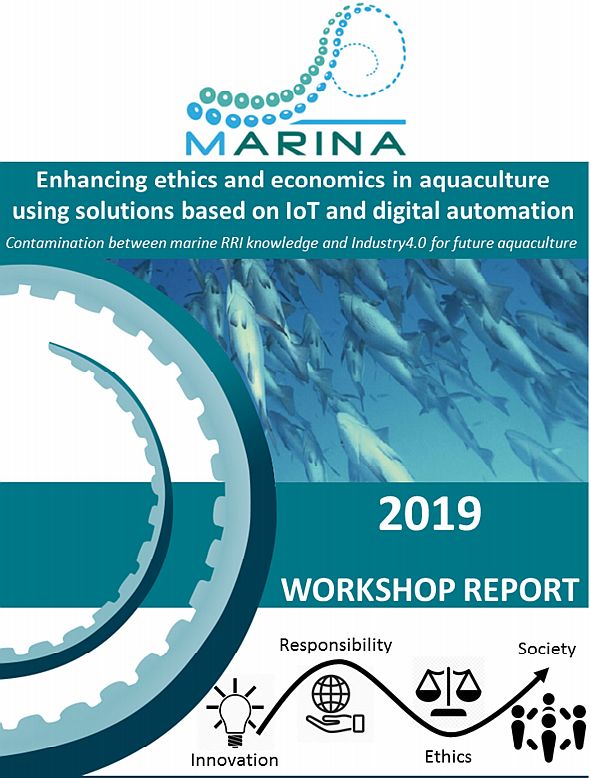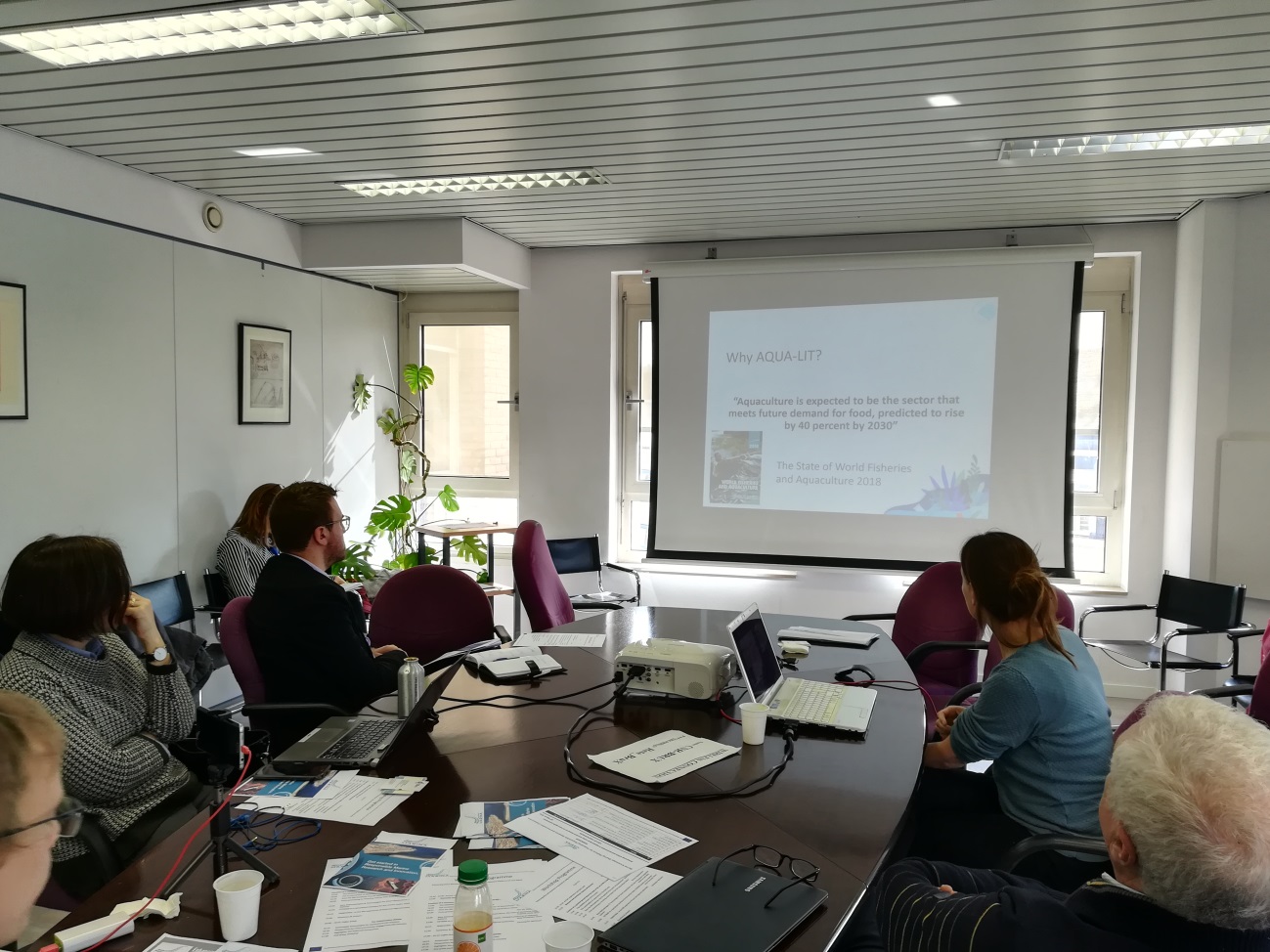
The workshop was organised by MARINA project consortium with the aim to analyse the potential connections between marine Responsible Research and Innovation (RRI) knowledge and digital automation technologies.
Developing innovative and sustainable food sources is a key priority for Europe and a key-issue in the marine sector with a huge social impact. Several IT-solutions are on the run for increasing sustainability in aquaculture, and other are being developed and field tested. The so called 4.0 approach adopted for the automatization of the industrial field has started to be applied to the marine sector. When the industry 4.0 and the marine sector overlap, the RRI approach is mandatory for ensuring the fulfilment of the needs and expectations of society.

Fien De Raedemaecker (VLIZ) presenting AQUA-LIT
The workshop focussed on the need to find solutions for overcoming social and environmental problems in the current aquaculture methods, in terms of unsustainable practised and marine littering, by merging the knowledge of marine and industry sectors, ensuring RRI application. Economic and social development complying with environmental sustainability is still a challenge. Among others, marine litter is now recognised as persistent problem affecting the seabed, the water column and coastlines. Given the harm it causes to marine wildlife, coastal communities, ecosystems and maritime activities, and the effects it has on economies, human health and safety, marine littering is a problem that must be tackled from different angles. Even though still not being the most concerning source of marine pollution, the European Commission is studying the contribution of aquaculture to marine littering and examining a range of measures to minimise plastic loss from aquaculture, including the possible adoption of a Best Available Technique reference document for aquaculture installations. AQUA-LIT is playing an important role in tackling marine litter from aquaculture in Europe; Fien De Raedemaecker, representing AQUA-LIT, presented the strategy and methodology of the project, summarized in 4 steps:
- Map the state of play: literature research, aquaculture stakehodlers, already existing tools and measures;
- Set-up “Learning Labs” in the Mediterranean Sea, in the North Sea and in the Baltic Sea for collaborating with the entire aquaculture stakeholder chain in finding innovative solutions and innovations
- Formalise a toolbox that will provide existing, upcoming and already implemented tools, case studies, best practices, a database and links between stakeholders in different regions;
- Provide a set of policy recommendations to reduce marine litter from the aquaculture sectors, transferring best practise to the outermost regions and providing long-term sustainability of the toolbox after the project’s life.
The methodology was included in the learning outcomes of the workshop. For more information on the workshop and the outcomes check the MARINA platform